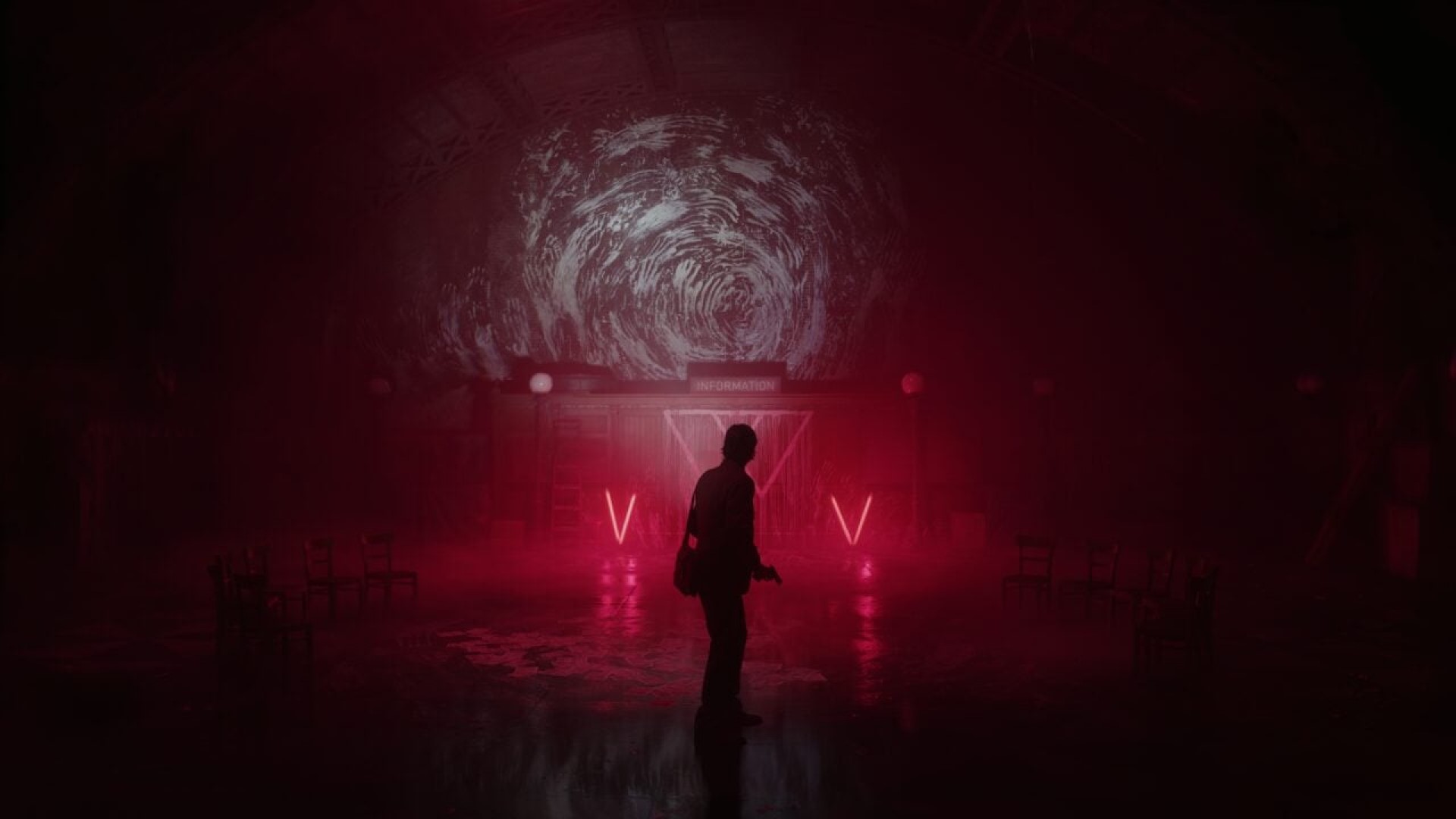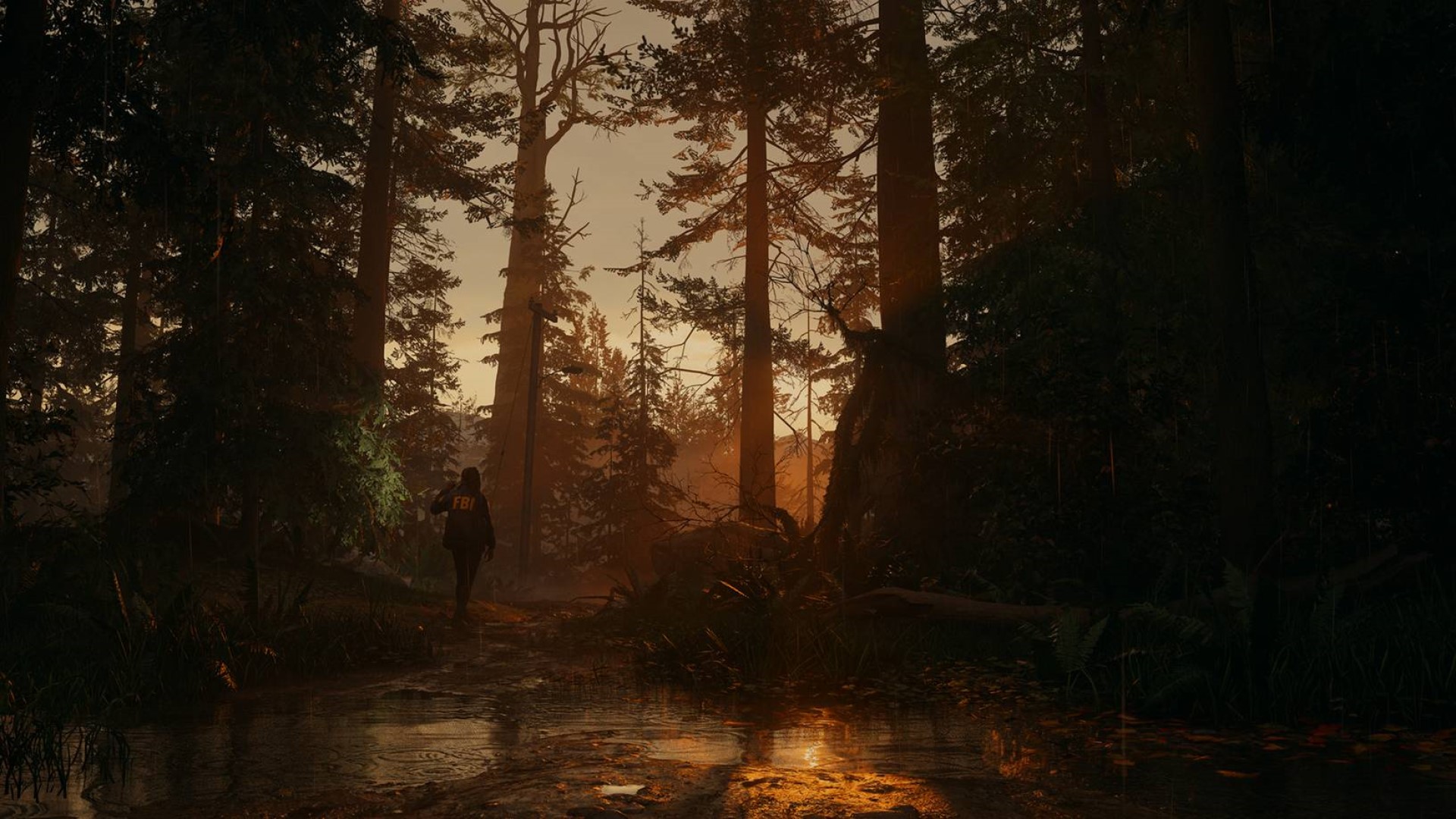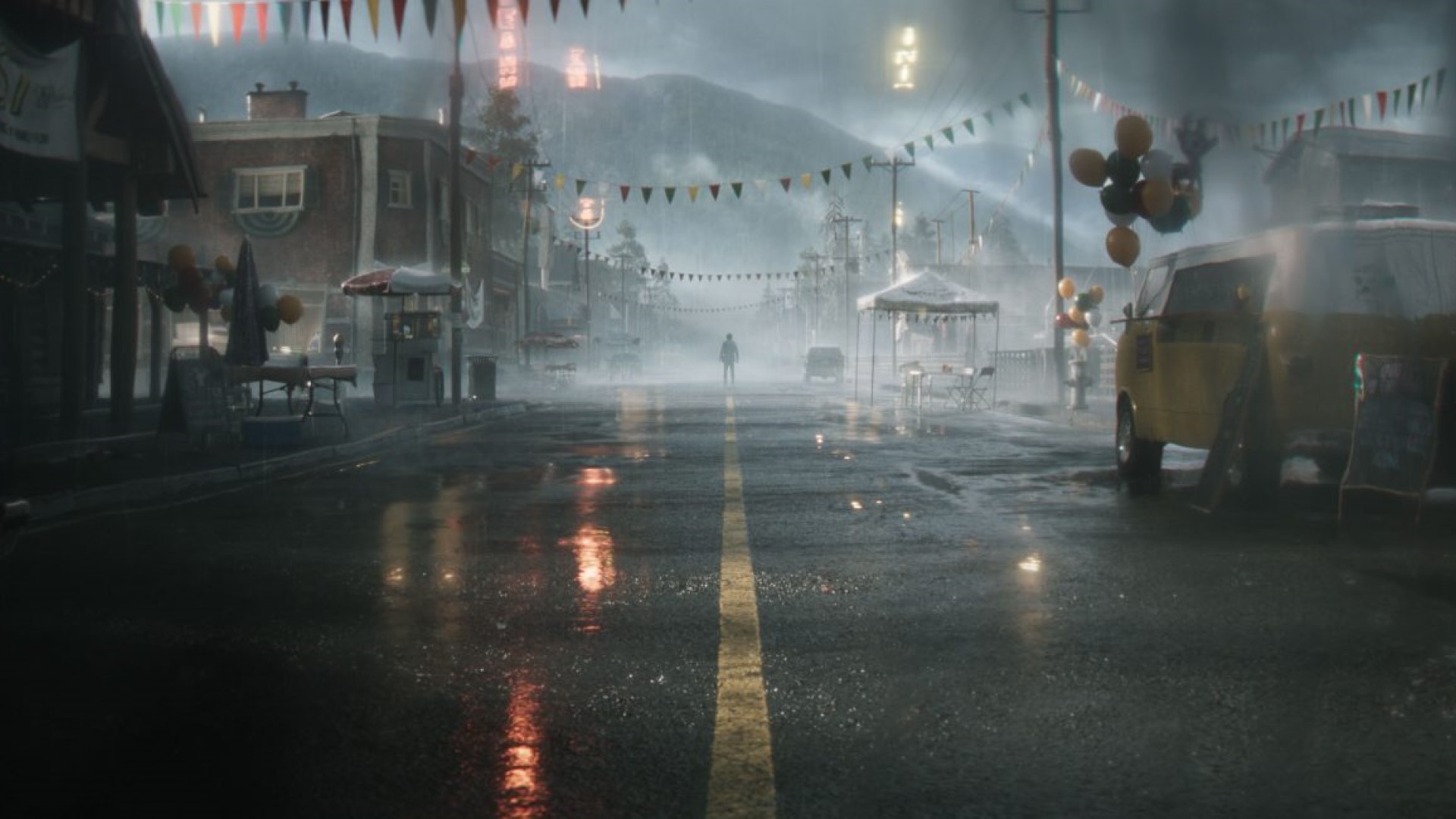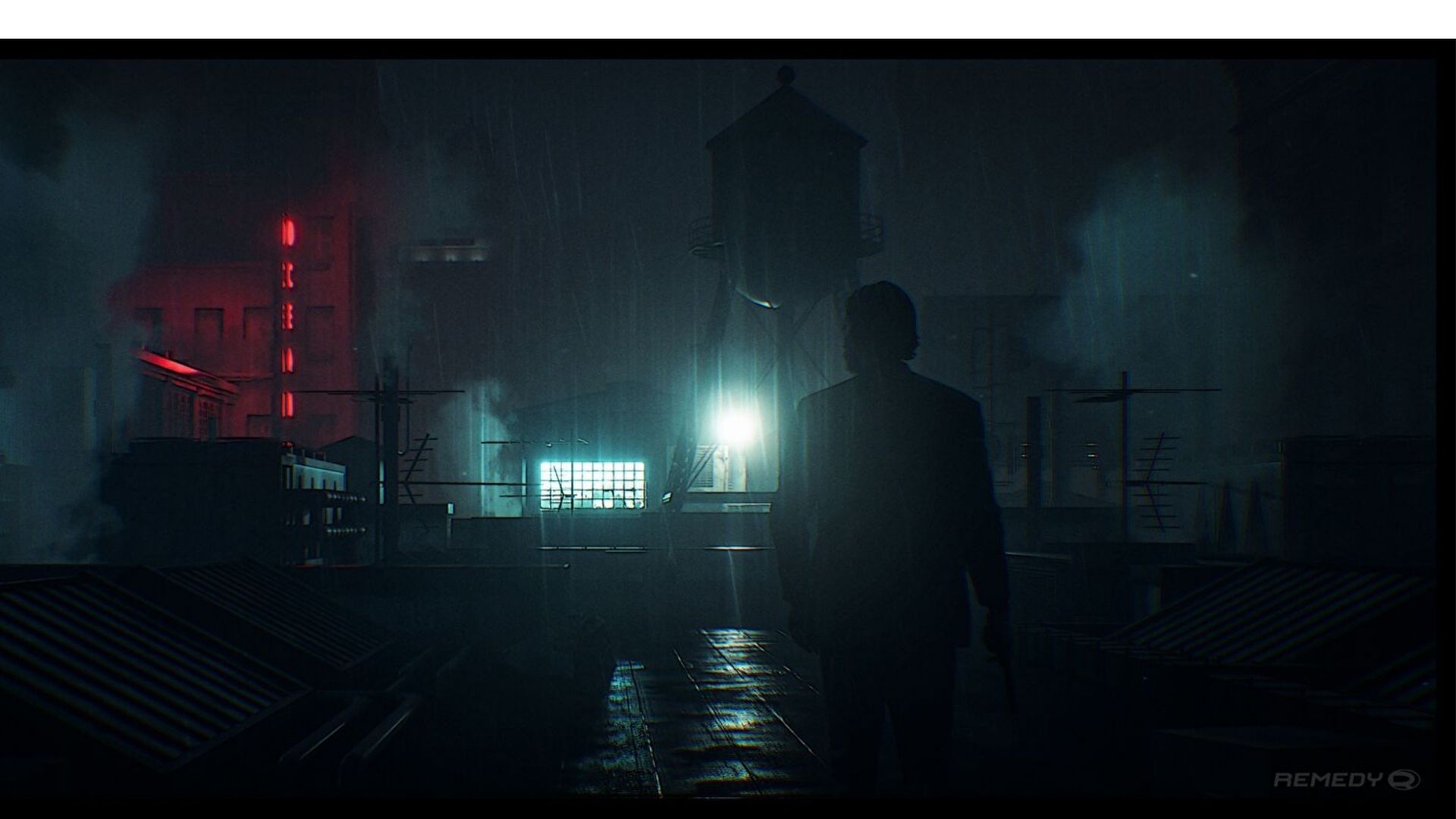Remedy Entertainment is one of the most recognizable names in the industry, thanks to a consistent output of games that push the boundaries of storytelling in new and exciting ways. The veteran developer is also known for creating worlds that feature a higher level of graphical fidelity, and be it the brutalist architecture of the FBC in Control or the neo-noir drama of Max Payne – Remedy’s games strive to be at the cutting edge of modern rendering techniques.
The highly anticipated Alan Wake 2 has just been released, and it’s almost everything fans would want from such a sequel. Talking specifically about the graphics side of the game, Alan Wake 2 marks the debut of the Northlight Engine on current-gen consoles (if you exclude Control Ultimate Edition). So, what has changed this time around? With this technical analysis, we will be diving deep into the presentation of Alan Wake 2, comparing the PS5 version with the PC release, and also discussing performance across both platforms.
Game Engine Overview And Comparison With The Original
The original Alan Wake released more than a decade ago and used proprietary in-house tech for rendering its twisted world of Bright Falls. While the game does look dated by modern standards, it was an impressive visual showcase with great lighting effects and highly detailed character models for its time.
Jump to the present, we have Alan Wake 2 which runs on Remedy’s Northlight Engine. It’s the same engine that has been used in every game from the developer since Quantum Break, and it works to great effect here as well. The rendering pipeline has been upgraded to take advantage of the current-gen machines, and we get to see some great use of ray tracing along (only on PC) with consistent use of high-quality assets across environments and character models.
Comparing Alan Wake 2’s and the original’s visual presentation, there’s a complete night and day difference which is understandable since the two games are generations apart.
Lighting And Reflections

Alan Wake 2 is a game about light and shadows, so it makes sense that the developer has put a lot of attention into creating a good lighting and reflection model. The game makes use of ray tracing on PC for its global illumination, and the lighting looks breathtaking as a result. The world looks realistic, and light approximation works beautifully across all conditions and different times of day. As for the indirect lighting, the game makes use of path-tracing to handle indirect lighting on PC which works in tandem with the ray tracing to create a consistently realistic look.
As for the reflections, we get to see generous use of ray-traced reflections, and the reflections themselves also preserve a lot of details from the environment. Take, for instance, the section where Sarah gets to explore the town of Bright Falls during the daytime. The roads have plenty of puddles, there are reflective window panes on shops, and gloss-painted cars are lined along the road – all of which reflect the surroundings with great precision, and they are updated at a rapid pace which makes it look so good.
Character Models, Environments, And World Streaming

The character models in Alan Wake 2 also exhibit a ton of details, ranging from the detailed ski meshes to the clothes and animations. The clothes that the characters don are all rendered through the use of high-quality materials that appropriately react to light, and the skin is also composed of dense meshes that give a realistic look. The facial expressions continue to be the weakest link in Remedy’s character rendering pipeline, and this particular issue is all the more apparent when you talk to side characters throughout the story.
Switching gears over to the environment, Alan Wake 2 does a fantastic job of crafting environments that look absolutely realistic. Polycounts for assets are high across the board, and there’s plenty of geometric complexity to be found across different set props littered throughout the environments. Alan Wake 2 seems to be utilizing some sort of photogrammetry for its textures, but that’s more of an assumption rather than a concrete finding. All in all, the environment looks great right from the dense vegetation to the skybox and highly detailed cars.
As for world streaming, Alan Wake 2 is a linear game – so the scale of the rendered environments is quite small when compared to an open-world game. Thus, the micro-level fidelity is absolutely fantastic across the board and the world streaming system does a good job of maintaining that fidelity without any visible LoD swaps or animation cutbacks.
Weather Effects And Post-Processing

Much like the original, Alan Wake 2 is highly dependent on the generous usage of fog to convey its ominous atmosphere. The Northlight Engine produces some great volumetric fog in the game’s environments, and it reacts realistically with light which gives it all a very distinct feel. The shadows are also crisp and accurate, and they are rendered at reasonable levels of detail for objects far from the camera which gives the game world a very uniform look.
Briefly touching on post-processing, we get to see a per-object motion blur with what looks to be a high shutter speed – but the implementation is definitely quality stuff. As for the anti-aliasing, the super sampling solution does a rather good job of smoothing out any rough edges without showing any visible signs of artifacts.
Testing PC Specifications and Game Settings
For the purpose of comparison with the PS5 version, we went with a PC build that consists of an AMD Ryzen 9 5950X, Nvidia RTX 3080Ti and 32 GB of RAM. As you can imagine, this is a bit below the recommended set up for 4K at higher quality of ray tracing. That being said, it’s also important to mention that Alan Wake 2 is an extremely demanding game but our purpose here is to compare it with the PS5 version and see what kind of results we can get.
As such, we dropped the display resolution down to 1440p and rendering resolution to 720p, and went with every option set to its highest value including ray tracing and path tracing. We also used DLSS to help with performance (the game also supports AMD’s FSR 2). The settings menu does provide a wealth of sliders to choose from, which should allow tinkerers and enthusiasts to get the right balance between performance and fidelity. However, the menu itself is pretty barebones in terms of features. There’s no representation of memory usage, how settings impact performance, or helpful images to decipher the difference between each of the settings.
In the lake area, the game was hovering at around 30 to 38 frames per second but in more open ended areas, we were getting frame rates in excess of 40. Given that the game isn’t really fast paced, performance parameters in the 30s were acceptable to us. It may vary among different players but I can’t help but wonder whether the game could have been optimized better. Our gaming rig isn’t exactly low end and most current gen games run at maxed out settings without any sort of compromise.
Differences Between PC Vs PS5 Quality Mode Vs PS5 Performance Mode

Alan Wake 2 is a mostly uniform experience across both platforms and the major difference between the two versions of the game is how it handles indirect lighting. Ray tracing is unfortunately not present in the PS5 version of the game, and it’s been replaced by what looks to be some form of baked lighting. It’s definitely not as dynamic and crisp as the PC version, but it does look good thanks to the game’s linear nature and fixed light sources, so no harm, I guess.
Apart from this, the DLSS implementation does a better job of outputting a crisp image as opposed to the console counterparts which use FSR2 for upscaling and anti-aliasing instead. The PS5 version does look a bit softer as a result, but these differences are only visible if you really peep into the details. Overall, the game looks really good across both platforms – but PC is obviously the better way to experience Alan Wake 2, provided you have an ultra-powerful hardware.
Remedy Entertainment gives PS5 users two graphics modes – a Quality Mode that targets 30fps at 4K and a Performance Mode that targets 60fps at 1440p. Initially, Alan Wake 2 was going to be shipped with the quality mode only – and performance mode was added later at the behest of fans. Both modes largely hit their targets but expect frame rate drops here and there.
Conclusion

Remedy Entertainment has delivered a visual powerhouse with Alan Wake 2, and everything from the environments to the character models and lighting looks absolutely gorgeous. The Northlight Engine continues to be at the cutting edge of rendering technology with its quality implementation of ray tracing and path tracing for high end PCs. The graphics modes on the PS5 mostly hit their target but there are some issues that hopefully can be ironed out in the future. Overall, Alan Wake 2 is a technical shwocase, one that is best realized on a beefy PC.